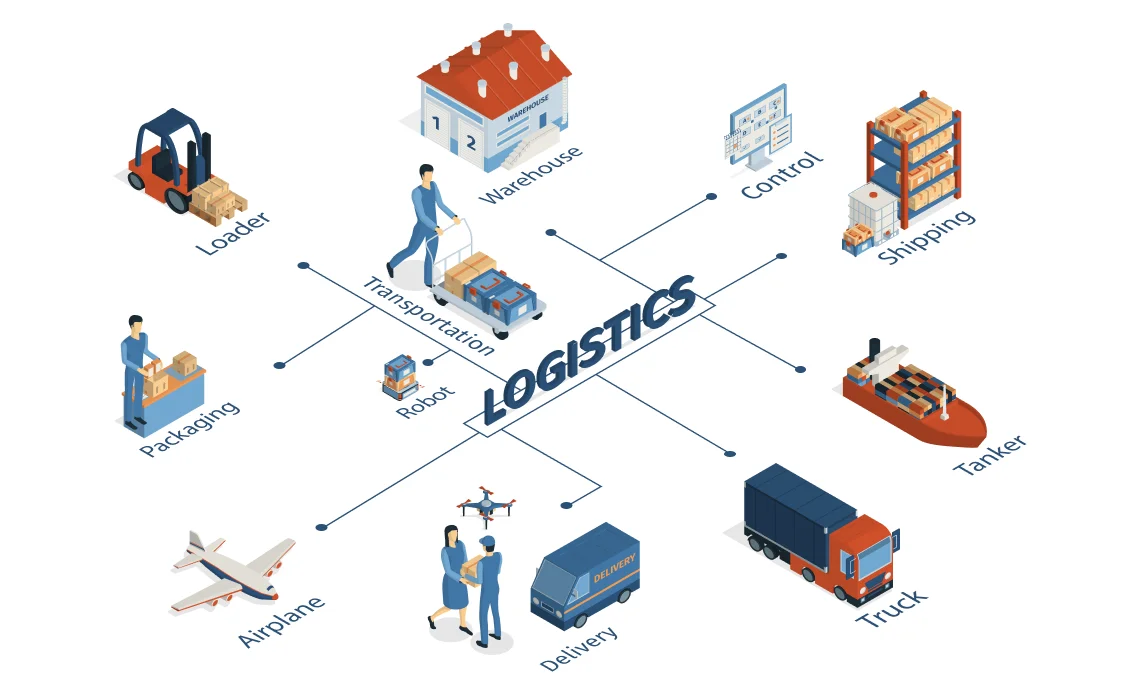

How Technology is Transforming the Logistics Industry
The logistics industry has undergone a significant transformation in recent years, thanks to the advent of technology. The rise of digitalization, artificial intelligence, and the Internet of Things (IoT) has revolutionized the way goods are moved, stored, and delivered. In this article, we will explore the impact of technology on the logistics industry and how it is reshaping the future of supply chain management.
Automation and Robotics
One of the most significant developments in logistics technology is the use of automation and robotics. Warehouses and distribution centers are increasingly relying on automated systems to streamline their operations. Robots and machines are being used to perform tasks such as picking, packing, and shipping, reducing the need for human labor and increasing efficiency.
Automation has also improved inventory management, enabling companies to track their stock levels in real-time and optimize their storage capacity. This has led to a reduction in costs, improved accuracy, and faster delivery times.
Artificial Intelligence and Machine Learning
Artificial intelligence (AI) and machine learning (ML) are being used to optimize logistics operations and improve decision-making. AI-powered algorithms can analyze vast amounts of data to predict demand, optimize routes, and identify potential bottlenecks in the supply chain.
Machine learning is also being used to improve the accuracy of demand forecasting, enabling companies to better manage their inventory levels and reduce waste. Additionally, AI-powered chatbots are being used to provide customer service, helping to reduce response times and improve customer satisfaction.
Internet of Things (IoT)
The Internet of Things (IoT) is playing a crucial role in the logistics industry, enabling the tracking and monitoring of goods in real-time. IoT sensors can be attached to shipments, providing real-time updates on location, temperature, and condition.
This has improved supply chain visibility, enabling companies to respond quickly to any disruptions or issues. IoT sensors are also being used to monitor the condition of goods, reducing the risk of damage or spoilage during transit.
Blockchain Technology
Blockchain technology is being used to improve the security and transparency of logistics operations. By creating an immutable record of transactions, blockchain enables companies to track goods from origin to delivery, reducing the risk of counterfeiting and increasing trust in the supply chain.
Blockchain is also being used to streamline payments and invoices, reducing the administrative burden on logistics companies and improving cash flow.
Digitalization of Freight Forwarding
Freight forwarding has traditionally been a paper-based industry, with documents and records stored manually. However, digitalization is changing this, with the use of digital platforms and cloud-based systems becoming increasingly common.
Digitalization has improved the efficiency of freight forwarding, reducing errors and increasing the speed of transactions. It has also enabled real-time tracking and monitoring, improving supply chain visibility and reducing the risk of delays or losses.
Mobile Technology
Mobile technology is playing a crucial role in the logistics industry, enabling drivers and warehouse staff to access information and update systems on the go. Mobile apps are being used to track shipments, update inventory levels, and communicate with customers.
Mobile technology has also improved the efficiency of last-mile delivery, enabling drivers to optimize their routes and reduce delivery times.
Cloud Computing
Cloud computing is revolutionizing the way logistics companies store and manage data. By hosting data in the cloud, companies can access information from anywhere, at any time, improving collaboration and reducing the risk of data loss.
Cloud computing has also enabled companies to scale quickly, without the need for expensive hardware or infrastructure investments.
Cybersecurity
As the logistics industry becomes increasingly reliant on technology, cybersecurity is becoming a major concern. Companies must ensure that their systems and data are protected from cyber threats, such as hacking and data breaches.
Implementing robust cybersecurity measures, such as encryption and firewalls, is essential to protecting sensitive data and preventing disruptions to operations.
Challenges and Opportunities
While technology is transforming the logistics industry, there are also challenges to be addressed. One of the biggest challenges is the need for standardization, with different companies and systems often unable to communicate with each other seamlessly.
Another challenge is the need for workforce development, as technology replaces traditional jobs and creates new ones.
Despite these challenges, the opportunities presented by technology are vast. The use of AI, IoT, and blockchain technology has the potential to create a more efficient, transparent, and secure logistics industry.
Conclusion
The logistics industry is undergoing a significant transformation, driven by the rise of technology. Automation, AI, IoT, blockchain, and mobile technology are all playing a crucial role in improving efficiency, reducing costs, and increasing customer satisfaction.
As the industry continues to evolve, it is essential that logistics companies stay ahead of the curve, investing in new technologies and developing their workforce to meet the demands of the future.
By embracing technology and innovation, the logistics industry can create a more sustainable, efficient, and customer-centric supply chain, enabling businesses to thrive in an increasingly competitive market.




